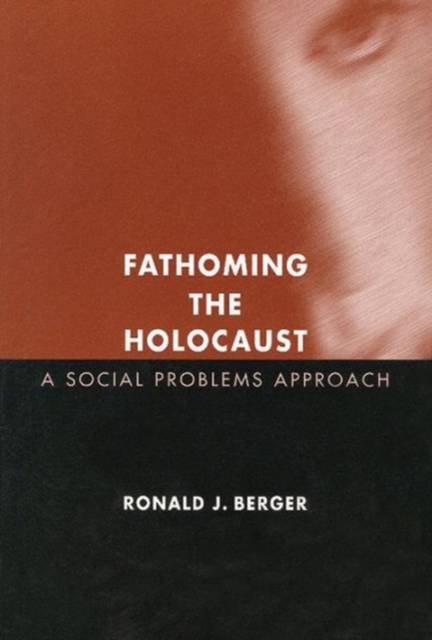
- Retrait gratuit dans votre magasin Club
- 7.000.000 titres dans notre catalogue
- Payer en toute sécurité
- Toujours un magasin près de chez vous
- Retrait gratuit dans votre magasin Club
- 7.000.000 titres dans notre catalogue
- Payer en toute sécurité
- Toujours un magasin près de chez vous
Description
Fathoming the Holocaust represents the culmination of a singular effort to attempt to explain the Final Solution to the "Jewish Problem" in terms of a general theory of social problems construction. The book is comprehensive in scope, covering the origins and emergence of the Final Solution, wartime reaction to it, and the postwar memory of the genocide. It does so within the framework of a social problems construction, a perspective that treats social problems not as a condition but as an activity that identifies and defines problems, persuades others that something must be done about them, and generates practical programs of remedial action.Berger holds that social problems have a "natural history," that is, they evolve through a sequence of stages that entail the development and unfolding of claims about problems and the formulation and implementation of solutions. Fathoming the Holocaust is therefore a book that aims to advance sociological understanding of the Holocaust, not simply to describe its history, but to examine its social construction, that is, to understand it as a consequence of concerted human activity. In doing so, Berger hopes to encourage the teaching of the Holocaust in the social scientific curricula of higher education. In contrast to the extensive historical literature on the Holocaust, Berger offers a distinctly sociological approach that examines how the Holocaust was constructed--first as a social policy designed by the Nazis, implemented by functionaries, and resisted by its victims and opponents; later as several varying layers of historical memory.The scope of this book extends from the prewar through the contemporary periods, focusing on the societal issues governing the interpreting of these events in Israel, the German Federal Republic, and the United States. Berger's is a text with both large general interest and essential material for courses in social problems, European history, and Jewish studies.
Spécifications
Parties prenantes
- Auteur(s) :
- Editeur:
Contenu
- Nombre de pages :
- 238
- Langue:
- Anglais
- Collection :
Caractéristiques
- EAN:
- 9780202306704
- Date de parution :
- 02-02-02
- Format:
- Livre broché
- Format numérique:
- Trade paperback (VS)
- Dimensions :
- 154 mm x 230 mm
- Poids :
- 349 g







